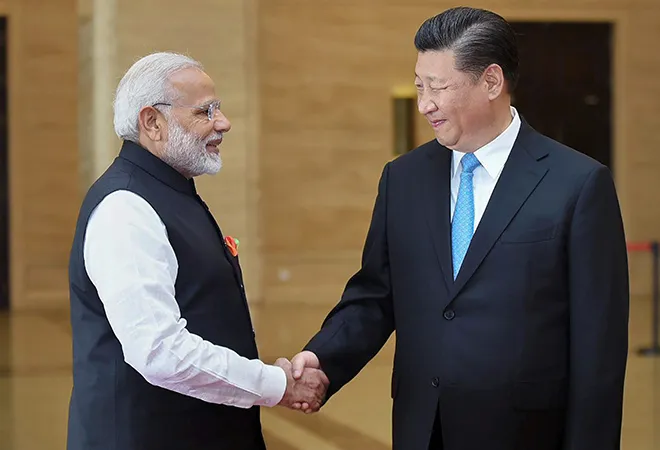The volatility of the security situation in Afghanistan was once again highlighted on 31 May when more than 50 people died in a coordinated double suicide bombing in Kabul and a shooting in the eastern Khost province. Those killed included 10 journalists. The Taliban and Islamic State are now competing with each other, and, in the process, the level of destruction is reaching unprecedented levels.
The attacks are also symbolic of the growing capacity issues facing the country. Less than 60% of Afghanistan is now being controlled by the government forces and as per the latest report of the Special Inspector General for Afghanistan Reconstruction, the Afghan army and police together have 36,000 fewer personnel today than they did last year as a result of desertions and casualties. Recognising its limitations, the Afghan President Ashraf Ghani made an effort in February to restart the peace process by offering to recognise the Taliban as a legitimate political group.
But the Taliban have so far not considered it important enough. Instead they want direct talks with the United States. Now, enter China and India with their talk of a joint economic project in Afghanistan.
This was reportedly decided at the informal summit in Wuhan on 27⎯28 April between Prime Minister Narendra Modi and Chinese President Xi Jinping. If this gets operationalised, it has the potential to reshape the geopolitics in and around Afghanistan.
Despite some initial optimism that India and China would find it easy to cooperate in Afghanistan given their shared concerns regarding terrorism and Islamist extremism, the two nations have been struggling to move forward. The counter⎯terror dialogue between the two started partly as a response to what was happening in Afghanistan, but failed to get off the ground because of China’s propensity to shield Pakistan’s behaviour in Afghanistan.
Pakistan has been central to nurturing terror groups for pursuing its policy of strategic depth vis⎯à⎯vis India in Afghanistan. It has single⎯handedly wrecked all serious efforts at finding a sustainable solution to lasting peace in Afghanistan. Once the gloves came off in Washington, the China-Pakistan axis has managed to scuttle any regional effort at stabilising Afghanistan. Now with the Belt and Road Initiative (BRI) being Xi’s pet project and India opposing the China⎯Pakistan Economic Corridor (CPEC), new ways are being found so that two nations can engage each other. A joint project in Afghanistan will unsettle Pakistan which has been discussing with China the possibility of extending CPEC to Afghanistan.
India’s engagement with Afghanistan has been substantial since 2001 and has been expanding consistently based on converging interests. New Delhi remains Kabul’s best friend in popular imagination and India has been investing in building capacities at various levels for the nascent Afghan state. Despite Pakistan’s obstructionist policies, India⎯Afghan ties’ upward trajectory is clearly underscored by the activation of the India⎯Afghanistan air corridor and the finalisation of a trilateral agreement with Iran over the Chabahar port.
So the idea of partnering with China, which would also like to see a stable and economically⎯viable Afghanistan with a strong central government, becomes attractive for India. What it demonstrates is some new thinking in New Delhi and Beijing on how to mitigate the costs of the deteriorating security situation in Afghanistan. But there have been too many false dawns in the past, especially when it comes to India⎯China ties, and it remains to be seen if anything of significance will come of this latest idea.
This commentary originally appeared in Hindustan Times.
The views expressed above belong to the author(s). ORF research and analyses now available on Telegram! Click here to access our curated content — blogs, longforms and interviews.




 PREV
PREV


